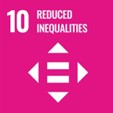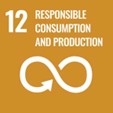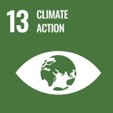2023 to 2024 Departmental Sustainable Development Strategy Report
ISSN: 2818-579X
Unless otherwise specified, you may not reproduce materials in this publication, in whole or in part, for the purposes of commercial redistribution without prior written permission from Law Commission of Canada’s copyright administrator. To obtain permission to reproduce Government of Canada materials for commercial purposes, apply for Crown Copyright Clearance by contacting:
Law Commission of Canada
PO Box 56068
Ottawa RPO Minto Place
Ottawa, ON K1R 7Z1
Cover photo: © Environment and Climate Change Canada
© His Majesty the King in Right of Canada, as represented by the Minister of Justice
Aussi disponible en français
Introduction to the 2023 to 2024 Departmental Sustainable Development Strategy Report
The 2022 to 2026 Federal Sustainable Development Strategy (FSDS) presents the Government of Canada’s sustainable development goals and targets, as required by the Federal Sustainable Development Act. This is the first FSDS to be framed using the 17 Sustainable Development Goals (SDGs) of the United Nations 2030 Agenda and provides a balanced view of the environmental, social, and economic dimensions of sustainable development.
In keeping with the purpose of the Act, to make decision-making related to sustainable development more transparent and accountable to Parliament, Law Commission of Canada supports the goals laid out in the FSDS through the activities described in the Commission’s 2023 to 2027 Departmental Sustainable Development Strategy (DSDS). This Report provides a report on progress related to the Law Commission’s DSDS in the fiscal year 2023 to 2024.
The Federal Sustainable Development Act also sets out 7 principles that must be considered in the development of the FSDS as well as DSDSs. These basic principles have been considered and incorporated in the Law Commission of Canada’s DSDS and 2023 to 2024 DSDS Report.
To promote coordinated action on sustainable development across the Government of Canada, [name of federal organization]’s departmental strategy reports on Canada’s progress towards implementing the 2030 Agenda and advancing the SDGs, supported by the Global Indicator Framework (GIF) and Canadian Indicator Framework (CIF) targets and indicators. The Report also now captures progress on SDG initiatives that fall outside the scope of the FSDS.

Commitments for the Law Commission of Canada

GOAL 10:
ADVANCE RECONCILIATION WITH INDIGENOUS PEOPLES AND TAKE
ACTION ON INEQUALITY

GOAL 12:
REDUCE WASTE AND TRANSITION
TO ZERO-EMISSION VEHICLES

GOAL 13:
TAKE ACTION ON CLIMATE CHANGE
AND ITS IMPACTS

GOAL 10:
ADVANCE RECONCILIATION WITH INDIGENOUS PEOPLES AND TAKE
ACTION ON INEQUALITY
FSDS Context:
Social, economic and environmental inequalities persist in Canada. These inequalities disproportionately affect people who share multiple and intersecting identity factors, such as gender identity and expression, race and ethnicity, faith community, indigenate, disability, sexual orientation and low socioeconomic status. Reconciliation with Indigenous peoples is essential to address social, economic and environmental inequalities and achieve lasting equality.
The re-establishment of the Law Commission of Canada is an important initiative in the context of reducing inequality and advancing reconciliation with First Nations, Inuit, and Metis communities.
The Commission will also support whole-of-government efforts to align laws, policies, programs and initiatives with the United Nations Declaration on the Rights of Indigenous Peoples and the implementation of the United Nations Declaration on the Rights of Indigenous Peoples Act.
As provided by the LCC Act, the Law Commission of Canada is to study and keep under systematic review, the law of Canada and its effects, with a view to providing independent advice on improvements, modernization and reform that will ensure a just legal system that meets the changing needs of Canadian society and of individuals in that society, including those directly linked to SDG 10.
Target theme: Advancing reconciliation with First Nations, Inuit, and the Métis communities
Target: Between 2023 and 2026, and every year on an ongoing basis, develop and table annual progress reports on implementing the United Nations Declaration on the Rights of Indigenous Peoples Act (Minister of Justice and Attorney General of Canada)
| Implementation strategy | Departmental action | Performance indicator starting point target | How the departmental action contributes to the FSDS goal and target and, where applicable, to Canada’s 2030 agenda national strategy and SDGs | Results Achieved |
|---|---|---|---|---|
| Implement the United Nations Declaration on the Rights of Indigenous Peoples Act | Provide training on Indigenous cultural competency or training on the United Nations Declaration on the Rights of Indigenous Peoples. Program: Law Commission of Canada Secretariat |
Performance indicator: Percentage of staff trained on Indigenous cultural competency (internal or external) Starting point: New initiative launched in 2023 Target: 100% by March 31, 2024 |
Public servants are uniquely positioned to facilitate respectful relationships with Indigenous peoples in Canada. This measure encourages public service employees to increase their cultural competency and awareness of First Nations, Inuit and Métis issues in Canada, as well as their knowledge of the United Nations Declaration. This measure contributes to the development of cultural knowledge and skills necessary for the implementation of the United Nations Declaration. Relevant objectives or ambitions: Ensure employees are provided access to the growing suite of Indigenous Learning resources available through the Canda School of Public Service, designed to help increase cultural skills and awareness of issues related to First Nations, Inuit, and Metis in Canada. |
Indicator result: All Law Commission of Canada employees registered for and completed the full suite of Indigenous Learning courses. Notes: The achieved result met the target of 100% by March 31st, 2024. |
| Consult and cooperate with indigenous peoples in the development and implementation of the Commission’s research program. Program: Law Commission of Canada Secretariat |
Performance indicator: Meaningful incorporation of indigenous individuals’ communities and / or organizations at all stages of research and engagement activities and projects. Starting point: New initiative launched in June 2023 Target: 100% (annual) |
With the passage of the United Nations Declaration on the Rights of Indigenous Peoples Act, the Government of Canada, in consultation and collaboration with Indigenous peoples, is taking all necessary steps to ensure that federal laws are consistent with the Declaration. Relevant targets or ambitions: Ensure equality of opportunity and reduce inequality of outcomes, through the systemic review of the law of Canada, with a view to providing independent advice on improvements, modernization and reform that will ensure a just legal system. Examination of the potential role of the LCC in supporting recommendations and plans articulated by the Act; For example, by initiating and facilitating relevant collaboration among Indigenous communities, scholars and policy makers. |
Indicator result: The Law Commission of Canada’s Advisory Council includes First Nations members who advise the President and Commissioners on all manner of issues related to Research and Outreach project design and implementation. Informal Indigenous advisors are currently providing ongoing support and guidance to the President. The Law Commission of Canada plans to pursue a formal Indigenous advising arrangement for the upcoming fiscal year. A relationship has been established with the First Nations University. We are also actively seeking out Indigenous vendors where appropriate. Internal processes governing Research and Outreach are designed to include considerations for Indigenous communities, individuals, and organizations from the very beginning of each project's design. |

GOAL 12:
REDUCE WASTE AND TRANSITION
TO ZERO-EMISSION VEHICLES
FSDS Context:
The Government of Canada is committed to reducing plastic pollution and waste, with an approach that works at every stage of the plastics life cycle and follows the waste management hierarchy. It promotes a circular economy that promotes the sustainable design of plastic products and materials so that they can be reused, remanufactured, or recycled and therefore kept in the economy for as long as possible.
Target theme: Federal Leadership on Responsible Consumption
Target: The Government of Canada’s procurement of goods and services will be net-zero emissions by 2050, to aid the transition to a net-zero, circular economy (All Ministers)
| Implementation strategy | Departmental action | Performance indicator starting point target | How the departmental action contributes to the FSDS goal and target and, where applicable, to Canada’s 2030 agenda national strategy and SDGs | Results Achieved |
|---|---|---|---|---|
| Strengthen green procurement criteria | Ensure that all procurement and material management specialists receive green procurement training (for example, the Canada School of Public Service Green Procurement course, or equivalent) within one year of identification Program: Law Commission of Canada Secretariat |
Performance indicator: Percentage of procurement and material management specialists trained in green procurement within one year of designation. Starting point: New initiative launched in 2023 Target: 100% of procurement managers and material management specialists receive training within one year of identification |
Relevant targets or ambitions Improve education and awareness on green procurement. 444444 |
Indicator result: The LCC has entered into a Memorandum of Agreement with the Department of Justice for the LCC’s procurement-related activities. As the contracting authority for the LCC, Justice has confirmed that 100% of their procurement managers and material management specialists are trained in green procurement. Notes: The achieved result met the target of 100% by March 31st, 2024. |

GOAL 13:
TAKE ACTION ON CLIMATE CHANGE
AND ITS IMPACTS
FSDS Context:
The effects of human-induced climate change are being felt across the country. Canadians are seeing more exceptional temperatures and precipitation, as well as more frequent and severe forest fires, heat waves, droughts and floods.
Target theme: Federal Leadership on Greenhouse Gas Emissions Reductions and Climate Resilience
Target: The Government of Canada will transition to net-zero carbon operations for facilities and conventional fleets by 2050 (All Ministers)
| Implementation strategy | Departmental action | Performance indicator starting point target | How the departmental action contributes to the FSDS goal and target and, where applicable, to Canada’s 2030 agenda national strategy and SDGs | Results Achieved |
|---|---|---|---|---|
| Implement the Greening Government Strategy through actions to reduce greenhouse gas emissions, improve climate resilience, and green overall government operations | Ensure that all relevant employees are trained in assessing climate change impacts, conducting climate change risk assessments and developing adaptation measures, within one year of being identified Program: Law Commission of Canada Secretariat |
Performance indicator: : Percentage of relevant staff trained on climate change impact assessment, climate change risk assessment and adaptation development within one year of being identified. Starting point: New initiative launched in 2023 Target: 100% trained by 2024 |
Trained staff can identify risks associated with the delivery of critical programs and develop responses to increase the resilience of operations to the effects of climate change. Relevant targets or ambitions Improve education and awareness on climate change adaptation, mitigation and reduction and early warning systems: |
Indicator result: The LCC is a micro-organization that works closely with other departments to facilitate its internal functions and does not own any real property or vehicles. Despite the relatively small scope, the LCC is committed to contributing to the advancement of sustainable development through training and by empowering employees to consider healthier ways of commuting or travelling to work that minimize impacts on the environment so that we can collectively contribute to a sustainable future. |
Integrating Sustainable Development
Law Commission of Canada will continue to ensure that its decision-making process includes consideration of FSDS goals and targets through its Strategic Environmental Assessment (SEA) process. An SEA for a policy, plan or program proposal includes an analysis of the impacts of the given proposal on the environment, including on relevant FSDS goals and targets.
Public statements on the results of Law Commission’s assessments are made public when an initiative has undergone a detailed SEA. The purpose of the public statement is to demonstrate that the environmental effects, including the impacts on achieving the FSDS goals and targets, of the approved policy, plan or program have been considered during proposal development and decision making.
Law Commission of Canada did not complete any detailed SEAs in 2023-24.
